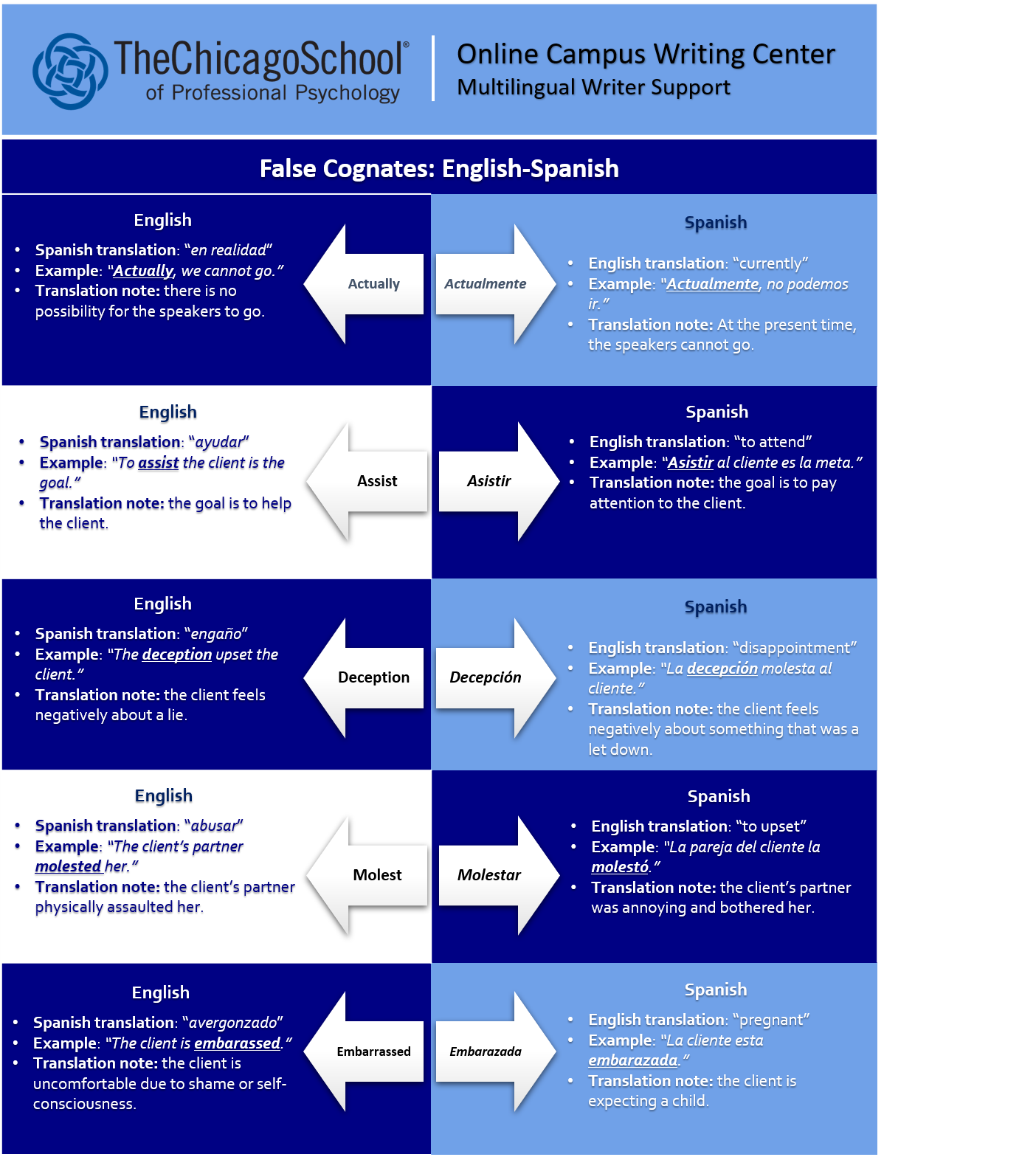MWS | False Cognates | Spanish-English
WHAT IS A "FALSE COGNATE"?
In writing, similar words called "false cognates" can lead to confusion for writers and readers. False Cognates are pairs of words, from two different languages, in which the two words appear to be spelled and pronounced similarly, leading the writer and reader to believe they share the same meaning; however, their meanings are not similar at all.
For example, in Spanish and English, largo and large appear to be spelled and pronounced the same, giving the impression that they share the same meaning. Despite the visual similarity, largo refers to length while large refers to physical size. Therefore, these two words make up a pair that can be called a False Cognate.
EXAMPLES
